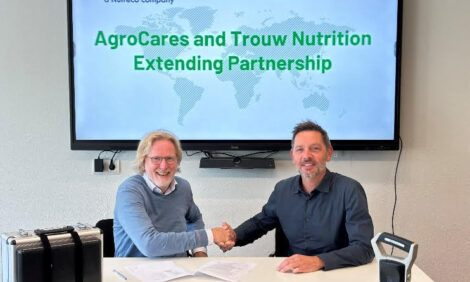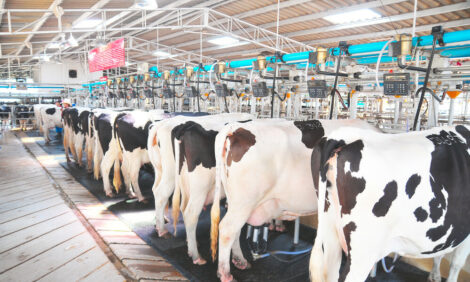



Targeted GBS flexibility accelerates genomic breeding programs
Genotyping-by-sequencing approach by Thermo Fisher Scientific produces valuable information of genetic markers in cattleUtilizing genomic information to increase profitability and improve production in livestock has become an essential component of modern breeding strategies. With rapidly changing genomic technology resulting in an accelerated rate of discovery of new genetic markers, it is important that genetic laboratories adapt quickly and provide cost-effective solutions for producers to take advantage of this information. The targeted genotyping-by-sequencing (GBS) approach using the AgriSeq workflow streamlines the process of developing custom genetic marker panels and provides the flexibility to quickly modify or combine existing genetic marker panels.
Beef and dairy cattle breeding programs have benefitted greatly from advances in genomic technologies. There has been an accelerated rate of uptake in the United States dairy industry since 2010, with data showing increased value and net merit. Genomic testing has increased lifetime profitability through selecting traits of economic importance in the industry. Aaron Larsen, Chief Science Officer with United Bio Research, Inc. explained recently why he has been using Applied Biosystems AgriSeq targeted genotyping-by-sequencing (GBS) workflows in conjunction with the Thermo Fisher Scientific GeneStudio system to develop customized solutions for cattle breeders.
During an interview, Larsen cites two factors — scalability and cost effectiveness — in the decision to focus on targeted GBS for supporting United Bio Research’s beef and dairy customers. The company develops customized genotyping panels, servicing operations with both high- and low-throughput. Requirements. With the AgriSeq workflows in conjunction with Ion S5 system technology, Larsen can leverage flexibility to keep costs low and results fast for all customer expectations.
“Targeted GBS flexibility,” he explains, “means we can customize specifically by customer in a lot better way.”
The United Bio Research solutions for dairy and beef genomic breeding programs include panels for disease mutations, economic traits, parentage assessment and gender identification. The panels developed so far include more than 65 markers for genetic disease and more than 70 variants that associate with traits of economic importance. The parentage panel incorporates the 200 advised SNPs (single nuclear polymorphisms) advised by ISAG (International Society for Animal Genetics). As discussed previously, breeders should concentrate only on markers important to own operation. For this reason, Larsen and his team create sequencing plates customized for each breeder.
Traditionally, sequencing costs decrease with high throughput for large numbers of samples. Larsen explains that the AgriSeq targeted GBS technology makes this possible even for customers with low throughput needs. This is due to the built-in flexibility of the system. Not only is it easy to add to and design new panels, but many panels can be sequenced in the same run. Hence, a low throughput panel is run alongside high throughput to keep costs low and benefit all customers.
As well as being able to design according to client specific needs, Larsen also notes that the AgriSeq workflow lets the research team react swiftly to new molecular discoveries. With each new trait, variant or mutation, Larsen and his team have capability to quickly add the information into customer sequencing panels.
The ease-of-use also benefits panel development. In developing gender identification panels, Larsen found that the targeted GBS approach could not only show Y-chromosome variants to detect Freemartinism, but also mutations beyond the standard read lengths. In collaboration with Thermo Fisher Scientific, the United Bio Research team designed primers to amplify polled mutations such as the Celtic Polled and Friesian Polled markers. They then worked with Thermo Fisher Scientific bioinformatics professionals to validate approaches to measuring copy number and so detect heterozygosity for carrier status.
By implementing Applied Biosystems AgriSeq technology and workflows, Larsen and his United Bio Research team are able to take immediate advantage of molecular discovery to benefit customers in the beef and dairy cattle industry.
Learn more about Aaron Larsen’s work with AgriSeq workflows in this World Congress on Genetics Applied to Livestock Production WCGALP workshop video
See what Thermo Fisher Scientific delivers for Agrigenomics
To see how our solutions can improve your breeding program, receive a free consultation with a genotyping specialist
For Research Use Only. Not for use in diagnostic procedures.



